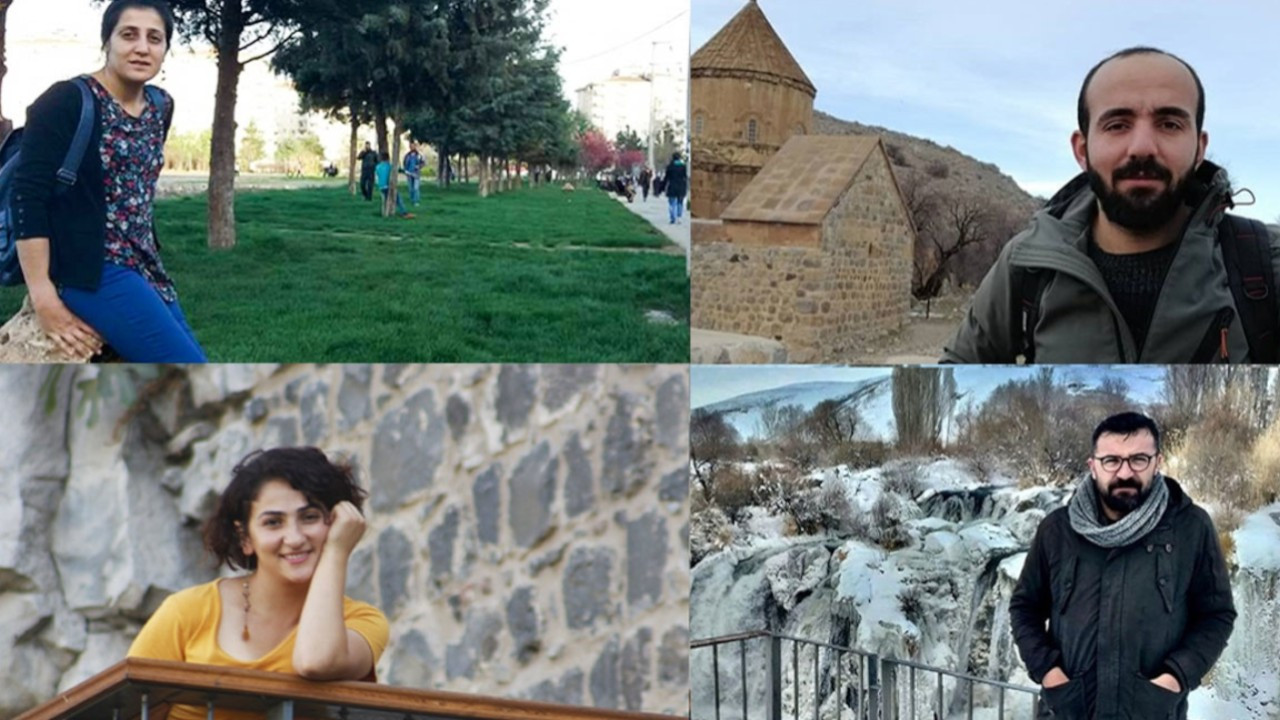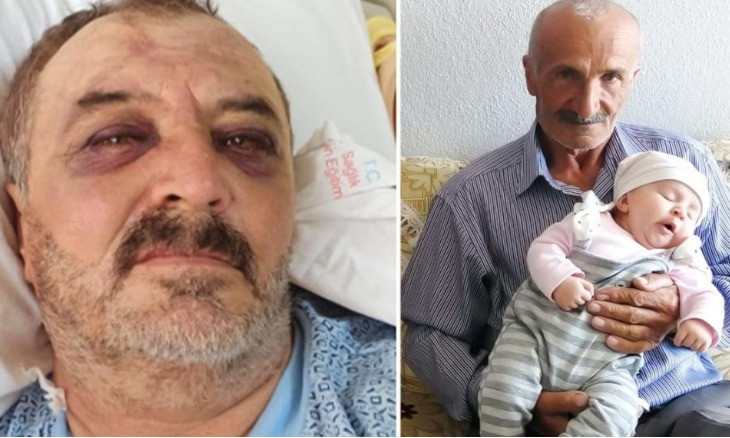Court frees four journalists after they spend six months in prison for reporting on 'helicopter torture'
A Van court on April 2 ordered the release of four journalists who were arrested in October over their report on the throwing of two Kurdish villagers from a military helicopter. The journalists emphasized during the hearing that they were being prosecuted over their journalistic activities, while lawyers deemed the indictment “a political document.”
Duvar English
A Turkish court on April 2 ordered the release of four journalists after they spent six months in jail over their report on the throwing of two Kurdish men from a military helicopter in the eastern province of Van.
The journalists will remain under judicial control, a condition that requires them to report regularly to a local police station.
The Van 5th Heavy Penal Court ruled that the next hearing of the case will be held on July 2, Mezopotamya Agency reported.
Following a raid on their houses on Oct. 6, 2020, Mezopotamya Agency journalists Adnan Bilen and Cemil Uğur and JinNews journalists Şehriban Abi and Nazan Sala were detained. Later, they were all formally arrested by a court order on charges of “being a member of a terror organization.”
The imprisonment of all the four journalists is linked to their reporting on the throwing of two Kurdish villagers, named Osman Şiban and Servet Turgut, who have been reportedly thrown out of a military helicopter in Van's Çatak district in September 2020.
While Şiban suffers from memory loss, Turgut died on Sept. 30 after spending 20 days in a coma.
During the first hearing of the case on April 2, the journalists emphasized that they were being prosecuted over their journalistic activities. “The trial here is the prosecution of all opposition journalists. This case will mark its print on the history,” journalist Bilen said.
The journalists' defense statements were frequently interrupted by the presiding judge.
Bilen said that the indictment brings up charges against him on the basis of photographs he had previously taken, which has no connection whatsoever to the present case.
Afterwards, Sala's defense was taken, during which she slammed the indictment for not considering them as journalists due to not owning press cards. She and Bilen indicated that several journalists critical of the government have in recent years had their press cards revoked or their applications for renewal denied.
Sala said that Turkish authorities had seized her newspaper archive consisting of 2010-2016 news pieces during the raid at her house, and now this archive is being considered “as an element of crime” in the indictment.
“These newspaper issues had not been pulled out of circulation. Is there a more normal situation than a journalist having newspapers as an archieve?” she asked.
“There is an intervention here at journalists and especially Kurdish journalists. If press freedom does not exist in a country, no one could be free, and neither could you be. I demand my release and acquittal,” she said.
Journalist Abi was the next person who addressed the court.
“It was at the fifth month of our imprisonment that an indictment was prepared. If you call it an indictment... It seems a 'technical monitoring' was undertaken against me in the first four months of 2020. I have made reports on women and children abuse. Is it a crime to do them?” Abi asked.
Journalist Uğur said that releasing a report on the helicopter drop of two citizens is “not a crime.” “The sources of our news piece is hospital reports and statements of eyewitnesses. Such torture reports have a high value for the public welfare,” Uğur said.
Another journalist who went on trial in the same case was Mezopotamya Agency journalist Zeynep Durgut.
Durgut, who is currently standing trial without arrest, connected to the courtroom via SEGBİS video link. Durgut said that the indictment brings up charges against her over how she conveyed the March 8 International Women's Day.
“My reporting on March 8 is being considered as a crime. I am a journalist. How can it be a crime to report on March 8 in this country where hundreds of women are being killed,” she said.
Lawyer Murat Emir deemed the indictment a “political document,” saying the prospector had asked why the journalists had not done any news pieces on “magazine or sports-related issues.”
“I think they are waiting for a penguin documentary, in line with their own evaluations. But there is no penguin in Van. Is the prosecutor waiting for a news piece on Van cat?” Emir asked.
Lawyer Veysel Ok, co-director of the Media and Law Studies Association (MLSA), also took the floor during the hearing, saying the real reason why the journalists have been imprisoned was “hidden in the indictment,” referring to the throwing of Kurdish villagers off the military helicopter.
“The real case, the real incident has not been placed in the indictment. The torture incident is released as a report; the whole of Turkey hears of it. And then the prosecutor, with this motivation, carries out a search in the journalists' workplaces, in search of evidence. The indictment itself is proof that this case is not legal,” Ok said.
He said that the prosecutor shows the journalists' making no news on sports- and magazine-related issues as an evidence of “terror organization membership.” “What can a journalist do in Van? There is always a violation of rights in Van. And that is what journalists report on,” Ok said.
After hearing all the defense statements, the court ordered the release of four journalists pending trial.

 Four journalists mark 101 days behind bars for report on helicopter drop of Kurdish villagersMedia
Four journalists mark 101 days behind bars for report on helicopter drop of Kurdish villagersMedia Silence continues on the "helicopter torture" caseWorld
Silence continues on the "helicopter torture" caseWorld